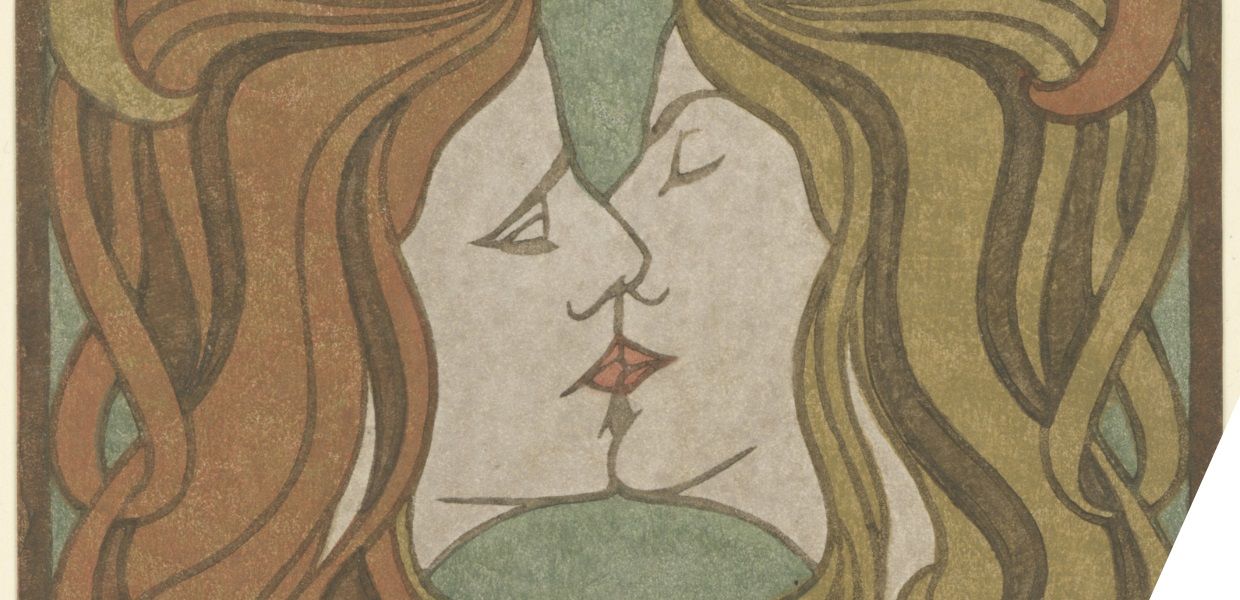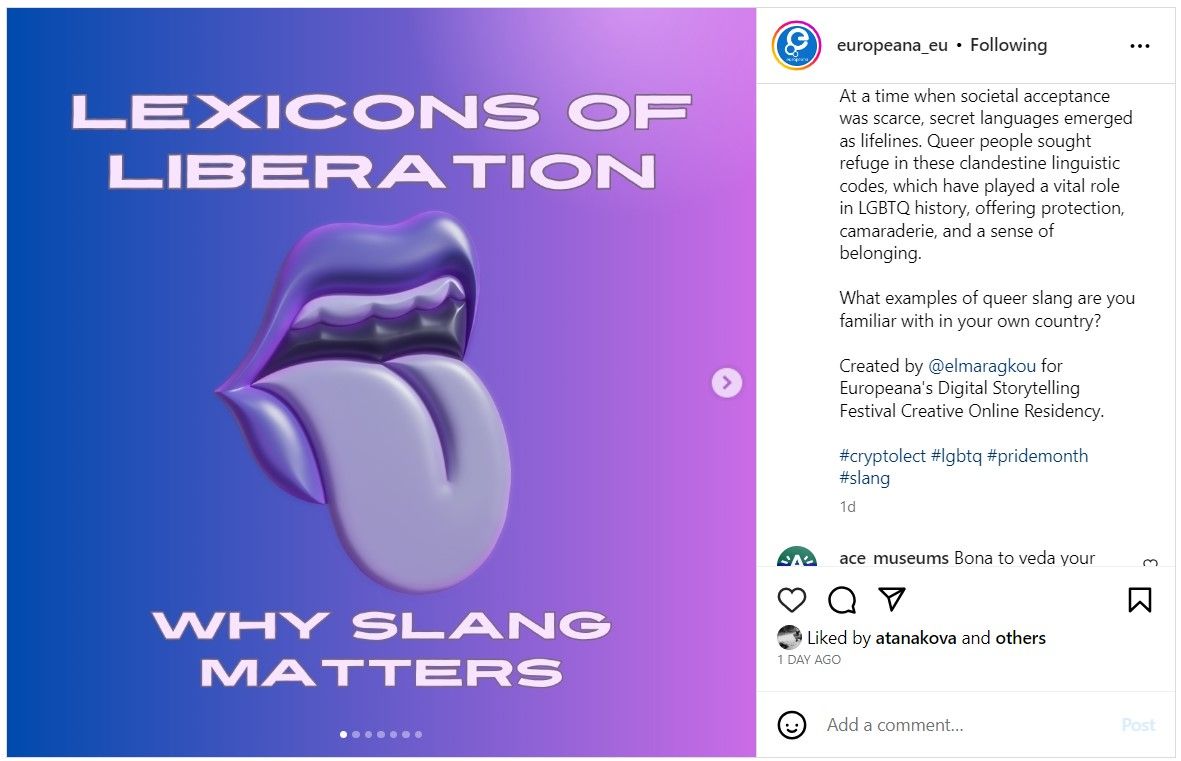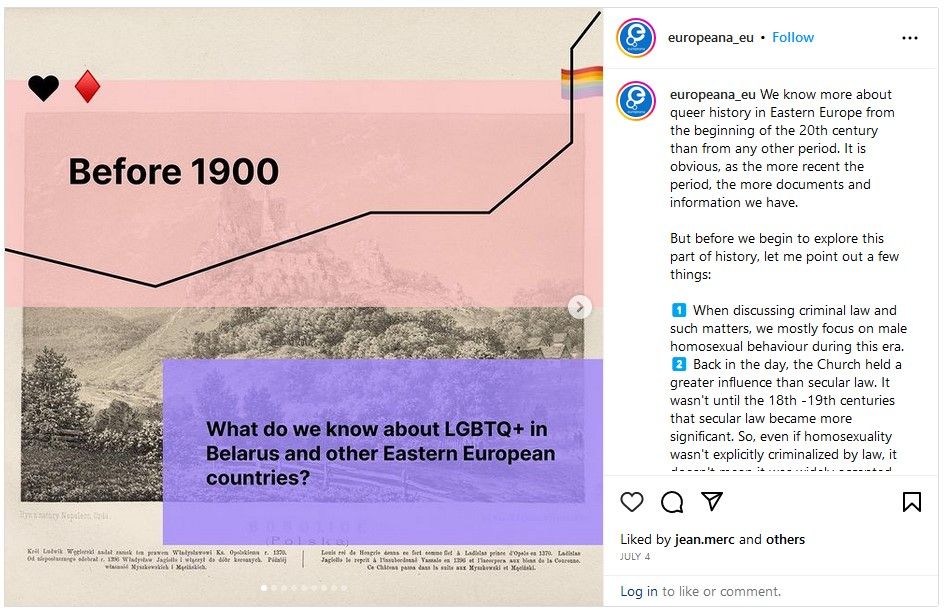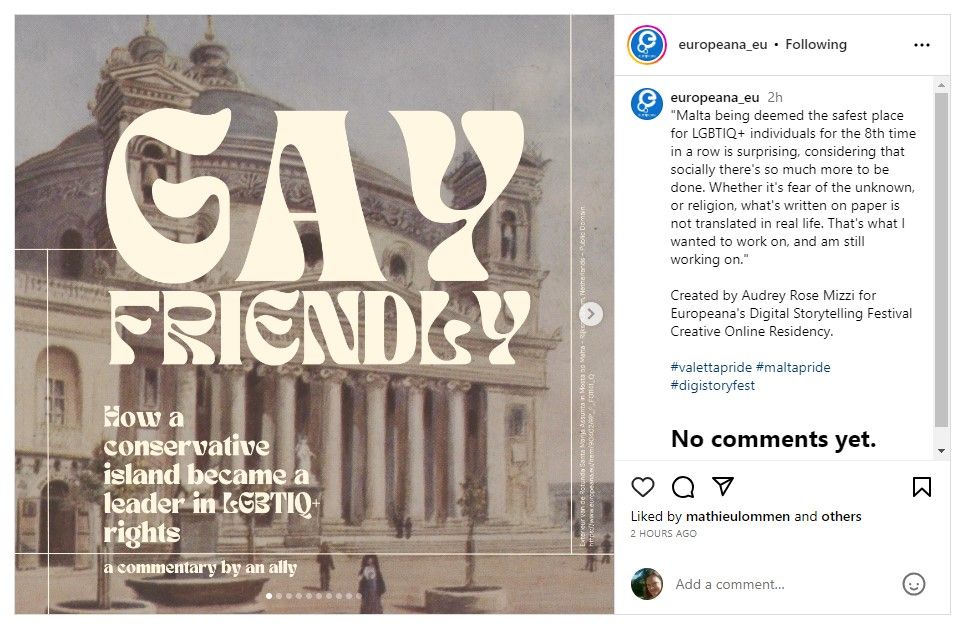Writing
Under the supervision of mentor Beth Daley, three participants looked at how Europeana collections could be used to inspire new writing. All three writers used the collections to build up a mental collage that shaped their ideas of time, place and character. Yasmine Ba and Joseph Degabriele explored elements of LGBTQ+ culture through informative writing on queer archives in Italy and on the concept of ‘coming out’, while Tonya Atanakova created a fictional story inspired by a gallery of items she curated through the Europeana website.
Yasmine says, ‘I applied to Europeana’s Online Creative Residency to gain more insights about how to write and cater for a digital audience, and to meet like-minded writers. I’ve learned a lot through the residency, from my peers but especially through the writing mentor Beth Daley, and received valuable tips in regards to finding my voice, choosing suitable visuals, and most importantly, on how to conduct effective and coherent storytelling.’
Read Yasmine’s story
Tonya says, ‘Storytelling, for me personally, is a balance between inspiration and imagination. For this project, I have drawn inspiration from Europeana collections to create galleries that inspired the characters. Then I let them tell me their stories. The goal is to take the reader on a kaleidoscopic journey through time and explore the complexities of identity and love for LGBTQIA+ people.’
Read Tonya’s story.
Joseph says, 'I applied for the residency as I always wanted an opportunity through which I could practise my writing. I believe through this experience I have understood more about my process of writing and also discovered tools which can help me to further develop my writing experience.'
Read Joseph's story
Reflections
Aleksandra Strzelichowska, Senior Online Marketing Specialist, coordinated the residency. She says, ‘During the residency, we wanted to offer young people a safe space to explore, experiment and create. By encouraging them to work with cultural heritage collections, we wanted to show them they're part of the bigger picture. At the same time, through the stories they created, they contributed to raising awareness about queer culture and queer histories.’
For participants, this wasn’t just an opportunity to have their work published, it was a chance to explore queer culture, and for some, to feel accepted within that culture. One participant, Aida Naasan Agha Spyridopoulou, told us that, ‘Being part of the queer narrative through a creative process made me feel part of queer culture, and doing so made me feel more comfortable with my queer identity and my sexuality. In the end, feeling you have a queer heritage is very important.’
As a group, we have learned a lot from each other and the process, and we hope to run another residency next year. In the meantime, we hope to see this year’s participants continue their projects by collaborating with each other, and we’ll share their updates when we can.
We would like to thank all the participants and mentors and the team at Europeana Foundation for their commitment, enthusiasm and effort.
Are you feeling inspired by the words of the Residency participants? Why not watch the recordings from the Digital Storytelling Festival and find out how you can submit a blog with your own ideas.





